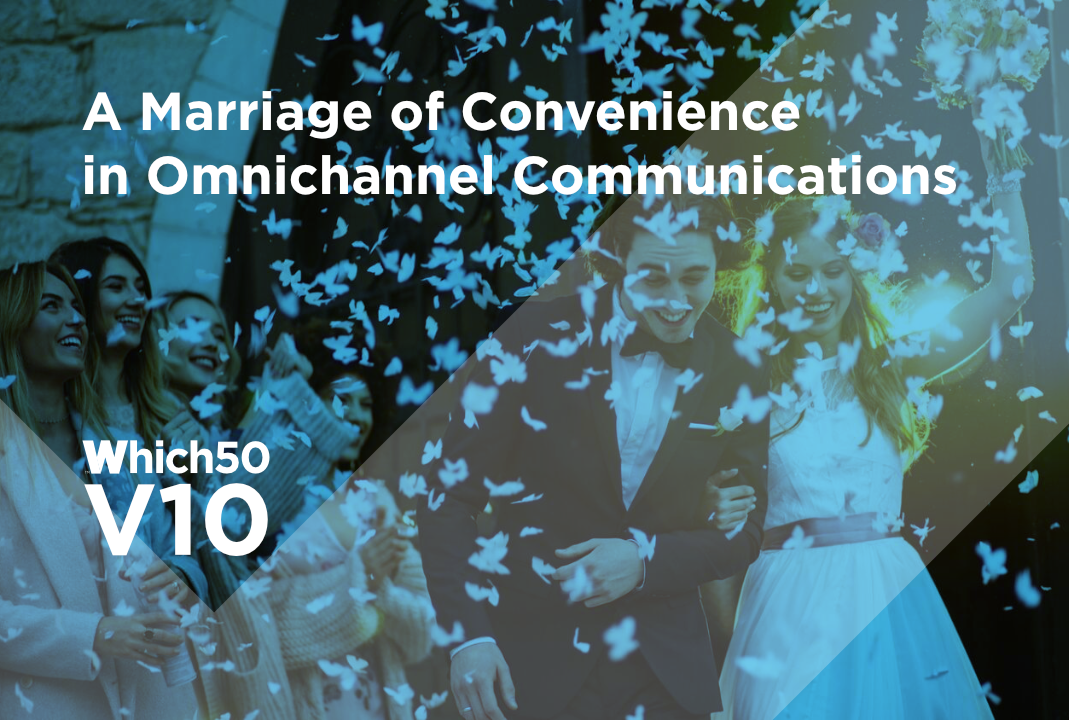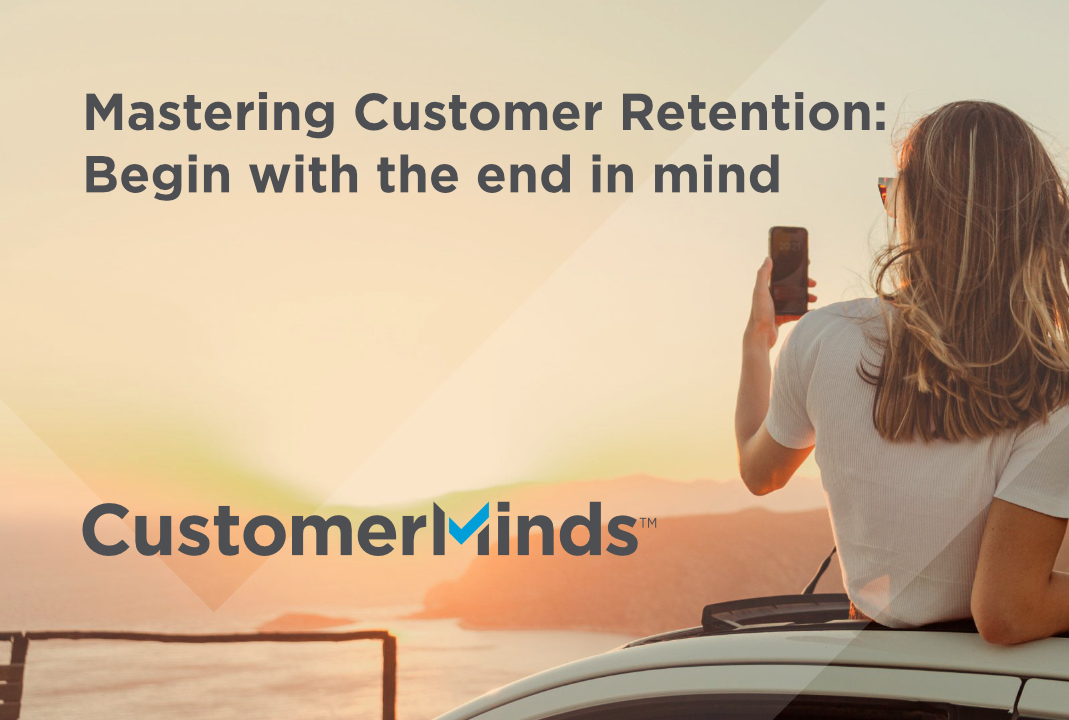If You Want To Change The World, Start By Making Your Bed.
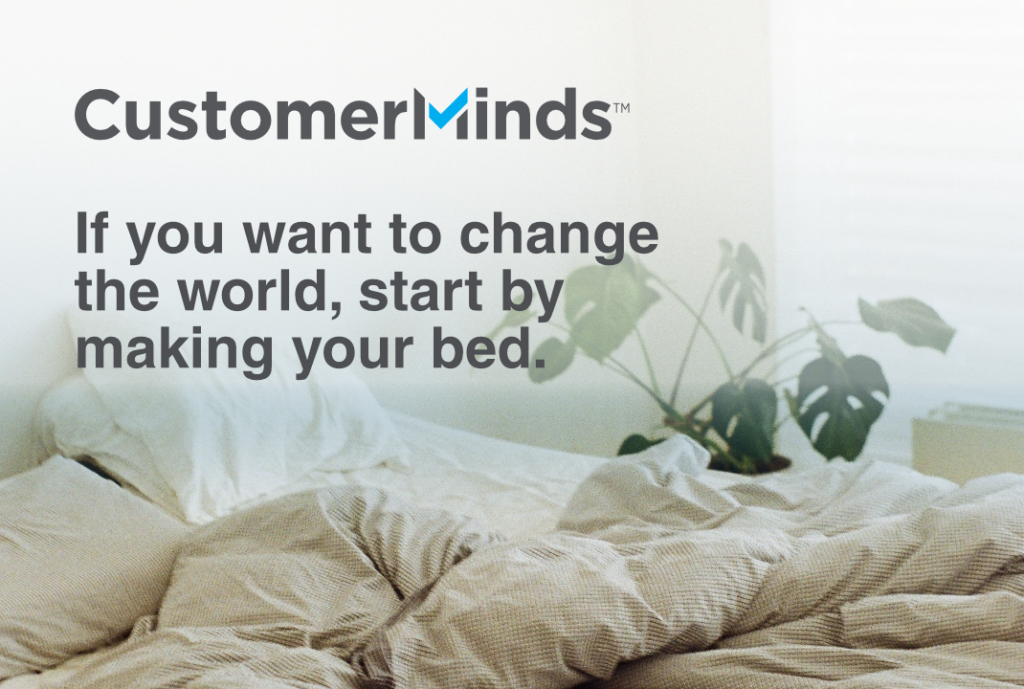
The famous words of US Naval Admiral William McRaven do resonate as a new calendar year dawns. The YouTube video of the ex-Navy Seal in his sparkling white uniform and Admiral’s cap is worth a watch as he encourages the 2014 class of University of Texas graduates to make their mark on the world. One part of McRaven’s speech is particularly relevant at this time of year when we think about taking on big challenges and new commitments:
If you make your bed every morning you will have accomplished the first task of the day. It will give you a small sense of pride, and it will encourage you to do another task and another and another. By the end of the day, that one task completed will have turned into many tasks completed. Making your bed will also reinforce the fact that little things in life matter. If you can’t do the little things right, you will never do the big things right.
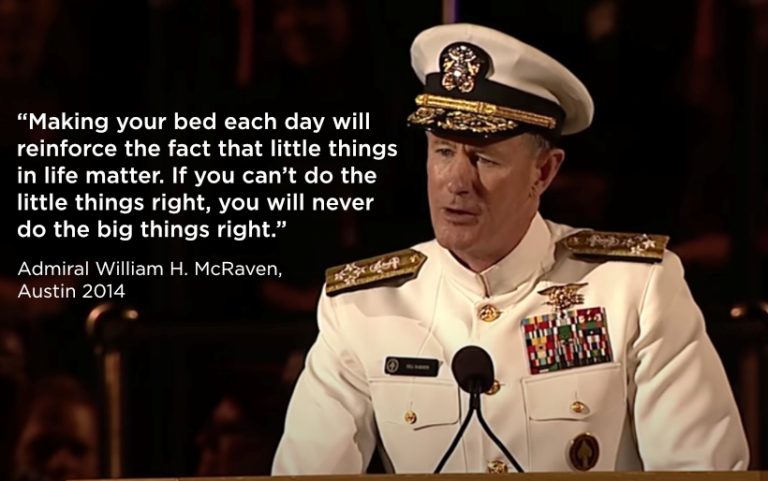
Our planet faces a climate emergency – perhaps the biggest challenge that we have faced as a human race. At first glance, the challenge for companies to act and make a difference can seem overwhelming – wouldn’t it be easier to just pull the warm, comfy duvet back over our business and wait for others to fix the problem? However, getting up and acting quickly on the “little things” is important and failure to tackle the easier tasks will almost certainly guarantee failure at a planetary level.
And perhaps more importantly, consumers are thinking the same way. Surveys consistently indicate that rising generations are more likely to buy from brands that they feel share their value. And post Cop-26 there is no doubt that an increasing number of people are looking for more action and less words from their service providers. Just as the over-playing of Ed Sheeran’s “Bad Habits” chart-topper begins to grate even his biggest fans, customers of even the most popular brands may become irritated if they don’t see real change happening in relation to the environment. Nobody expects a company to save the world in 2022 but many expect their service providers to start the year with better habits.
So what can you do in 2022 to make your corporate bed and start making a difference? We believe that a good place to start is existing postal waste. For service providers such as banks, telcos and utilities the mere receipt of a letter could drive a customer to switch to a greener alternative – regardless of their level of interest in Amazon deforestation. Going paperless will retain customers and deliver significant operational and financial wins for businesses. With automated customer communications solutions covering the entire customer lifecycle from customer acquisition and onboarding through to automated ebilling and customer retention solutions, there are significant opportunities to reduce costs and the associated impact on the environment.
Companies will also be aware of the sheer pace of behavioural change in the current consumer environment. Work-from-home migration, gig economy substitution and trillion dollar tokenomics are real-time examples of uber-fast consumer habit accelerations but this pace of change could still strike some readers as being less relevant to more traditional sectors. Think again.
Admiral McRaven’s public appearance with a hat marked the 50 year anniversary of the beginning of the end of hat-wearing by non-service members. Prior to the mid-1960s most middle-class adults in the Western world did not venture outside without some kind of cover, whether it was a Panama, cloche, fedora, beret or scarf. By the time of the lunar landing in 1969 hats had all but disappeared. The catalysts for change remain up for debate but include urbanisation, increased indoor work and wide-scale adoption of the automobile. One other factor often gets a mention however and that is that President John F Kennedy at his 1961 inauguration did not wear a hat at his swearing-in and speech. Leadership can send a very powerful message and we believe companies can lead a response to the climate emergency with better habits and initiatives.
CustomerMinds experience helping service providers reduce postal waste is significant and we have worked with major organizations like Vodafone, Bank of Ireland and the UK Post Office to support their sustainability journey with very good paper habits. We have seen how the results of putting the “e” into ESG can be delivered swiftly and communicated to all stakeholders with impressive data as well as improved business performance.
For example we worked with a major UK Telco over the last 18-months to digitise their Collections Journeys. The goal was to replace all of the letters that they were posting out to customers who had fallen into arrears – this amounted to over 250,000 letters being printed and posted each month. The new ‘fully digital’ campaigns went live in July of 2020 and had an an immediate impact in terms of reduction of paper and postage but also delivered significant improvements in key business metrics and KPIs as can be seen from the results below.

What’s not to like about results like these:
- Reduced inbound activity: More customers ‘self-serving’ reduced inbound activity and therefore fewer transfers to agents > 800 transfers per month saved
- Removed lengthy calls from the call centre: Customers who require a payment plan to resolve their arrears are resource heavy for the call centre – this digital campaign removed 700+ plan calls from the call-centre per month
- Removed more cases from collections: Pro-active digital engagements resulted in more customers making payment arrangements – captured additional 350 arrangements per month
- Increased cash collections: 70% kept promise rate on promises captured for other customers meaning the additional engagement contributed to additional collections of > £40,000 per month.
The numbers make sense to the business and the rising planetary temperatures are equally obvious to consumers. However, the window to put one’s corporate “thinking cap” on is closing fast. This is not the 1960s. Connectivity is global and behaviours can change at lightning speed. Think of the speed of change behind the following global megatrends:
- Digital Money: 26% of US adults aged between 25 and 64 have already bought a cryptocurrency. And… 55% of those holders only bought in the last 12 months. (Source: Grayscale)
- Gig-Economy: In 2014 licenced taxi-medallions in New York were changing hands at more than $1 million. Their value today post the invasion of Uber, Lyft, Via etc is closer to $100,000.
- Sustainability: The assets under management which are following sustainability/ESG principles is estimated to reach more than $50 trillion by 2025 (Source: Bloomberg)
The consumer these days is used to change but also expecting ever-faster delivery. The climate emergency will be a decades-long rescue project but the little habits can build to bigger things, and can be delivered swiftly. Postal waste can be the the first “e” in the ESG journey and Admiral McRaven has one further piece of advice:
“If you want to change the world, find someone to help you paddle.”
At CustomerMinds we may not be able to help you paddle but we can certainly help cut paper.
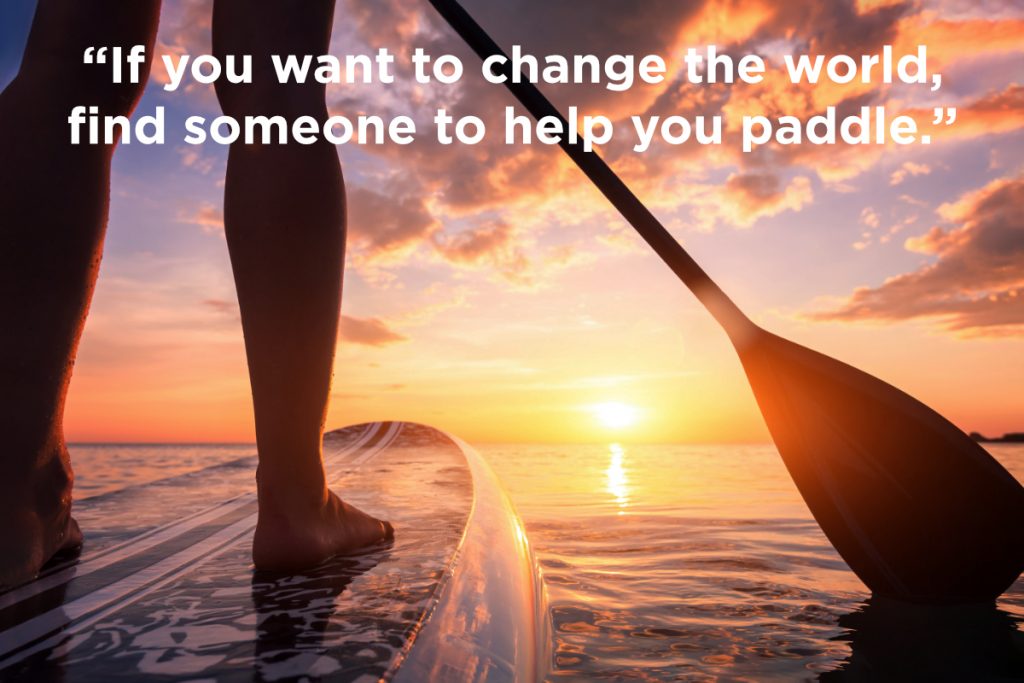
If you would like to find out how the Which50 platform can transform your customer journeys and bridge the gap in your digital transformation project, so that you can act quickly to get closer to your customers please fill out the form below and you will receive our bi-monthly newsletter.
 LOG IN
LOG IN